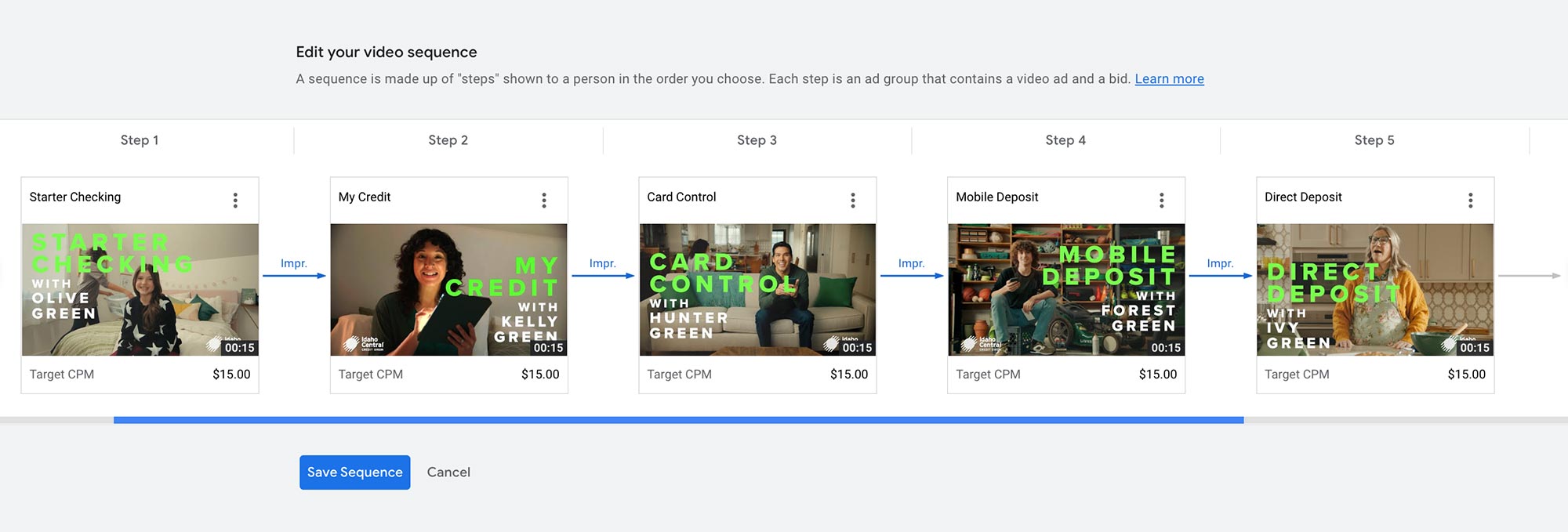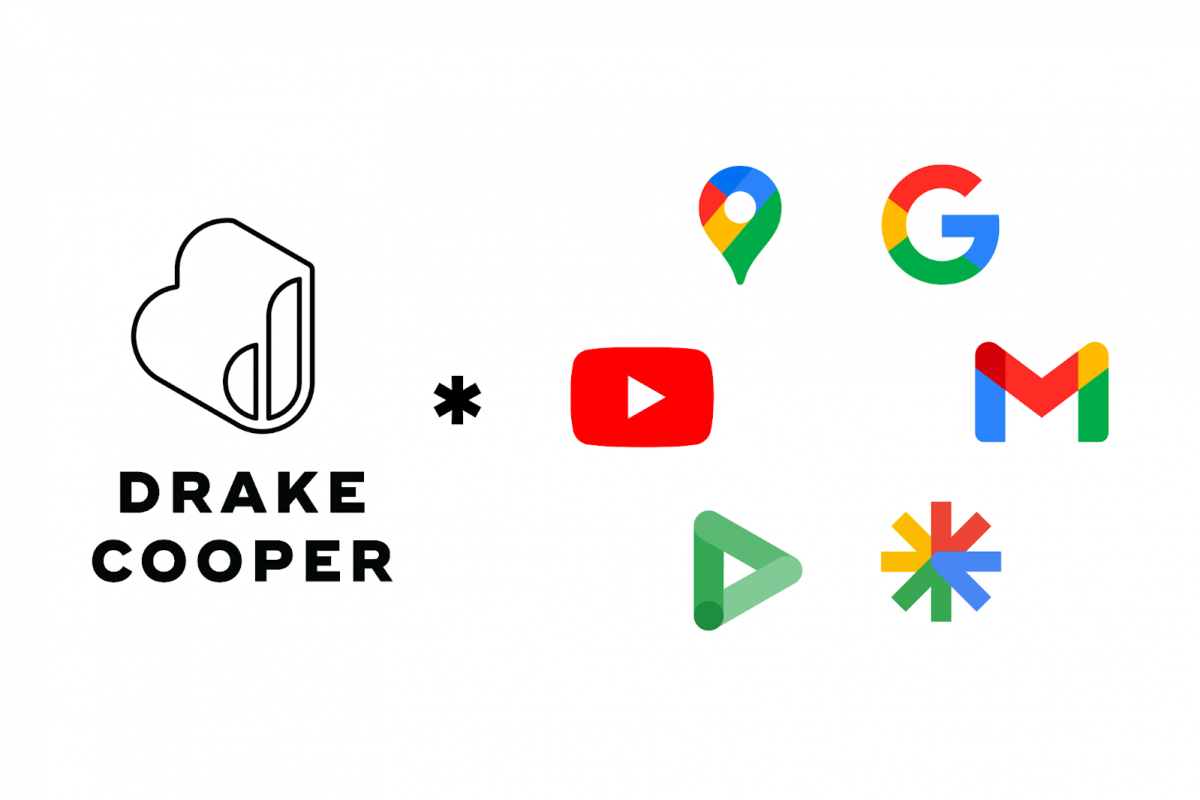Influencing Ad Recall And Consideration Through YouTube Ad Sequencing
We’re in a new age of online video content consumption. In the earlier days of YouTube, Hulu, and the like, we witnessed consumer sentiment around TV ads re-delivered in online formats unusually high. Channels were few and consumers didn’t have control over what advertisements they were exposed to. Now, users take part of the process as a form of brand co-creation. We select which channels and brands to interact with – either passively (such as being targeted due to our online activity) or actively (through our active pursuit and search of those brands).
Users now decide which channels to utilize and which messages to tune out.
It’s incredibly likely that your audience who consumes online digital video does so for a specific reason – whether that reason is outwardly understood or not. A frequent YouTube user does so for unique features that the channel provides over its alternatives. Are you taking those alternatives into account when planning your online video strategy?
Do you produce video advertisements for TV first, delivering the same content across all video channels (both online and offline?) Or do you treat each channel as a separate entity and separate practice, offering the same amount of time and care to producing a YouTube spot as you would television? Because your audience can tell the difference – and this simple but essential shift can give your online video strategies a leg up on larger companies with higher budgets whose messages are received through heavy frequencies and “wear-down” tactics.
For a mid-market brand who may not have access to Google’s minimum $10k-per-week YouTube Brand Lift campaigns, further up-front research and measurement goal setting can lead to the digital breakthroughs you’ve been looking for. This requires heavier lifting in the planning process of three practices: Creative, Media, and Measurement.
Creative
The “same old” 30 second TV spot no longer has a home in YouTube Advertising. Aside from the occasional breakthrough, YouTube’s 30-second TrueView format is a harsh environment for any creative longer than 15-seconds, where users can skip your ad after just 5 seconds.
Through research Google conducted on YouTube-specific creative, tailoring your creative development for YouTube and its different devices was essential. For mobile devices, visually-driven cuts garnered a 70% higher ad recall vs. a traditional TV spot repurposed for YouTube.¹ On TV Screens and Desktops, leading your ad with strong audio elements vs. your Traditional TV spot resulted in 2x the interest.¹
Media
YouTube offers a number of ad formats, including :06 Bumpers, :15 NonSkippables, and Skippable ads on anything over 15 seconds. In this phase of planning, it’s important to determine what most applies to the brand. For a large creative lift, we’d recommend YouTube Ad Sequencing. YouTube offers a range of predetermined formats to execute this tailored to each unique creative and business goal, but we’ll focus on delivering a brand lift while being wary of repetition, viewer fatigue, and measurement.

Enter “The Direct Shot… which uses four to six videos to present the same idea from different angles.”
In our newest case with a regional credit union, ICCU, we were met with conditions that perfectly gave us the opportunity to check out the Direct Shot. Through a recent initiative to push information regarding five of their main mobile banking products through the influence of a smart banking family, “The Greens,” we recognized the challenge of raising a region’s awareness and recognition of this family – and without the budget of a brand lift campaign, The Direct Shot became our ideal solution.
In this ad serving format, we were able to cut five, 15 second non-skippable spots and deliver them on YouTube sequentially – meaning viewers only receive the next ad down the line after they’ve viewed the one prior. With five spots with a similar look and feel, this is an ideal strategy for reinforcing the idea that each of these characters have their own important place in the ICCU banking experience. In terms of frequency, users can move through the five-ad sequence one full time per week before resetting the experience.
Measurement
The last piece of work that needs to be done before launching one of these campaigns is recognizing how success will be measured. As mentioned earlier, mid-market brands rarely have the $10k weekly budget required through YouTube to use their in-house measurement and surveying on brand lift campaigns. This requires us to get a bit more creative when it comes to understanding how success works.
What our team identified here were a couple problems advertisers tend to face, and how the ad sequencing would address each.
Generally, with greater repetition and frequency of ads on YouTube, even with their “Non Skippable” offering, performance tends to decline through a drop in Video Completion Rates (VCRs), this tends to indicate users are worn out with the message. By pushing five ads under the same campaign and message through the use of separate characters, we hoped to see that VCRs would not decline in the same way others do.
Through the use of heavier creative planning and the Direct Shot delivery, we’ve seen our fifth ad in the sequence actually deliver the second-highest VCR out of all the ads (all of which are performing far above benchmark), indicating decreased ad wearout and a greater understanding by consumers as they navigate through the sequence that the five spots deliver one coherent message and story.
Second is the increase of action taken off these ads. Historically, YouTube instream ads can fully be bucketed as awareness tactics. One’s objective is to simply heighten some brand awareness and develop brand recognition through video. However, one indication our team pointed out is that users are far more likely to be “getting it” and understanding your brand’s message if we start to see higher levels of activity taken off the Youtube Ads. Namely through click-through rates and conversion rates.
In ICCU’s case, we’ve seen a CTR about 3X that of the average of past YouTube Advertisements on our Sequenced Ads, and our 5th Ad in the Sequence actually has the highest CTR of the lot, with about a 35% increase in CTR from our 1st Ad in the Sequence.
As noted earlier, users now decide which channels to utilize and which messages to tune out. However, through some heavier lifting on Creative, Media, and Measurement, our team at Drake Cooper has uncovered some remarkable results. In this case, through Youtube Video Ad Sequencing, we’ve witnessed our ability to perform brand lift campaigns on a budget. You can leave the $10k/weekly budget minimums behind. Rather, with a little extra work and cross-team collaboration, brands of any budget can reap the benefits.
¹https://www.thinkwithgoogle.com/marketing-strategies/video/tv-ads-youtube-chevrolet/
Google Performance Max Campaigns
A Drake Cooper POV Why are we here? No matter how confident our team of buyers, planners, and creatives at…

Our Creative Advertising Services
-
Corporate Positioning, Brand Evolution & Strategy
Mission/Vision Development, Strategic Counsel For Marketing/Branding Challenges
-
Market Research
Quantitative, Qualitative, Ethnography, Consumer and/or Internal Stakeholder Insights
-
Creative Campaigns
Brand Campaigns, Product Launches, Full Funnel Marketing Efforts
-
Brand Design
Brand Guides, Style Guides, Branding Elements, Logos
-
Web Development and Digital Applications
Open-Source Platforms, Enterprise WordPress, eCommerce, AR, Emerging Technology
-
Media Strategy, Planning & Buying
Media Planning, Media Plan Development, Media Buying, MMM, Online and Offline
-
MarTech
AI, Responsible Consumer Data Management, Ad Ops, Marketing Software
-
Analytics
Dashboards, Insights, Business Metrics Evaluation, ROI Reporting, Data Warehousing
-
Content Creation
Videography, Photography, Short-Form Video, Organic Social Content
-
Findability™
SEM, SEO, GEO (AI Generative Experience Optimization), Voice Search